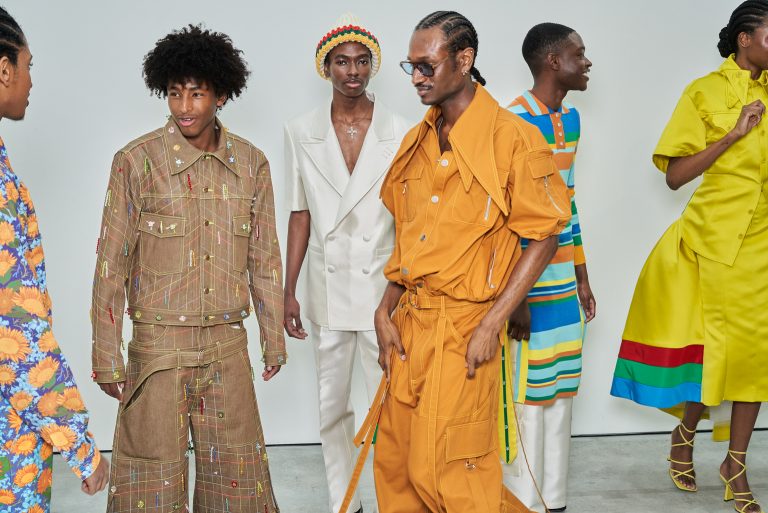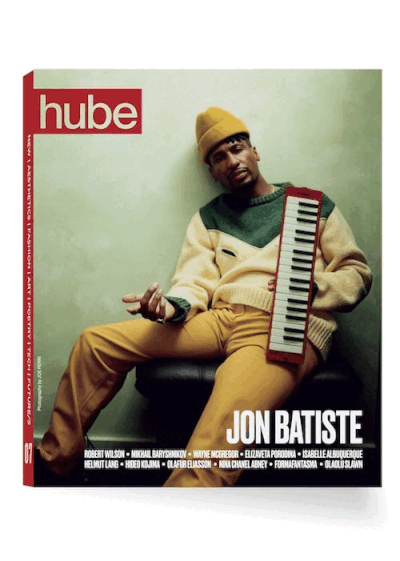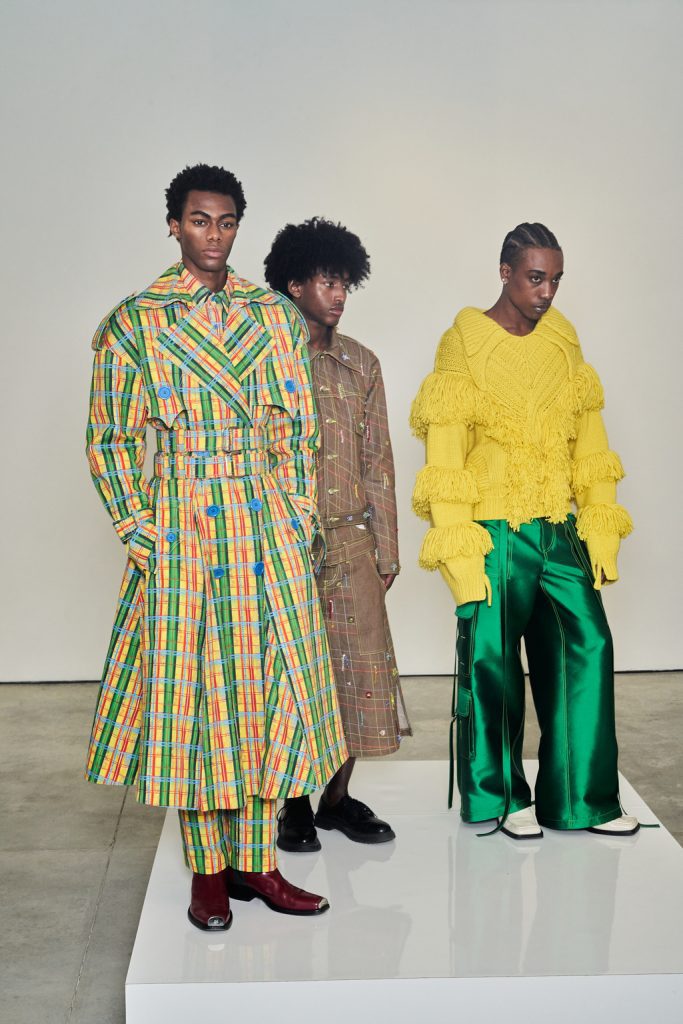
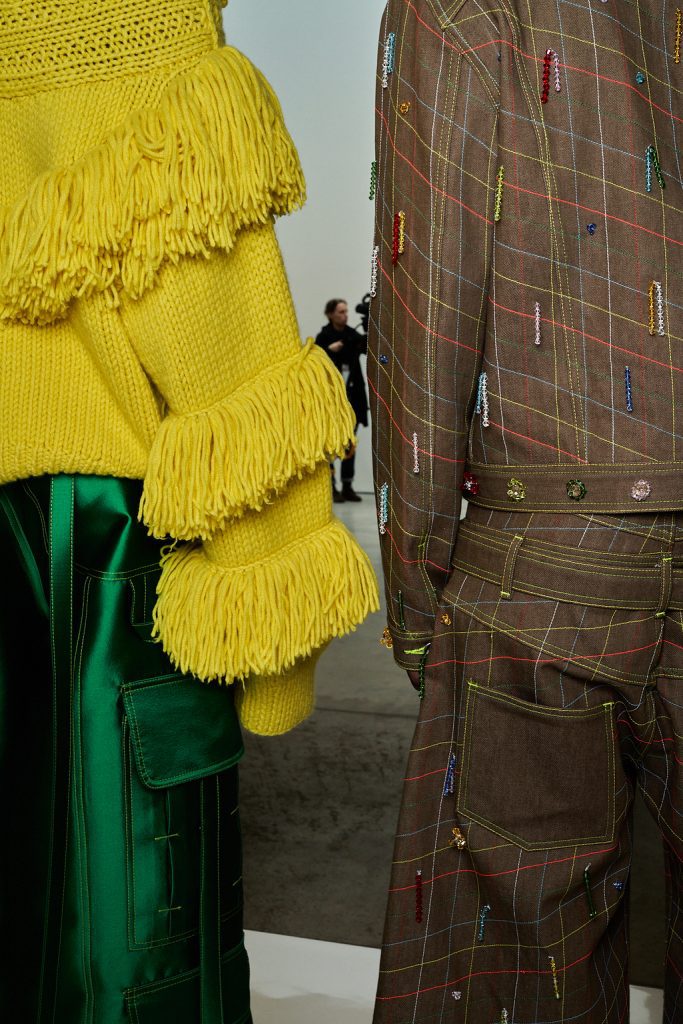
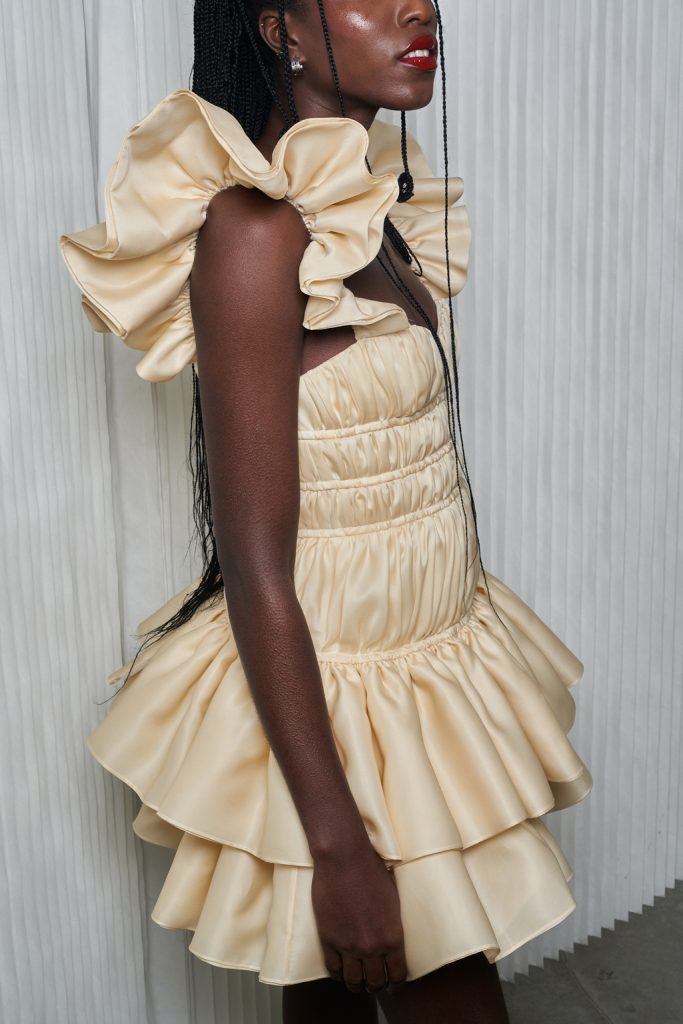
Jacques Agbobly founded Agbobly, a Brooklyn-based design studio, to amplify Black, queer, and immigrant narratives in fashion. With a commitment to sustainability and a celebration of Togolese heritage, Agbobly crafts vibrant designs that break down gender binaries and uplift communities through storytelling.
hube: What inspired you to establish Agbobly during the height of the pandemic in 2020, and how has the brand evolved since then?
Jacques Agbobly: Facing a global pandemic was a defining moment, one that felt serendipitous in its timing. I received an outpouring of support, including a GoFundMe campaign initiated by a mentor, to help secure a studio space. This dedicated space became a vital sanctuary for nurturing my creativity during the pandemic’s challenges. Sharing my knits on Instagram stories yielded an overwhelming response, confirming that I was following the right path. Despite lacking a clear roadmap, my passion for creating what I loved, and ensuring accessibility for others, drove me forward. Initially, I focused on what I could manage, which was knitwear. This sustained us during the early stages of the pandemic. Over time, I expanded our offerings to include additional items, culminating in the development of a comprehensive ready-to-wear collection.
Initially, our business revolved around creating unique, custom-designed sweaters. While this allowed us to maintain a manageable scope, I realised that to sustain and expand, we needed to broaden our horizons and focus on developing a larger collection. As we transitioned more towards wholesale, our attention shifted to encompass a variety of ready-to-wear items.
In February of this year, we showcased our latest collection, “Bienvenue à Bord,” during NYFW for the first time. The support from my community, in particular, was instrumental in launching Agbobly. Beyond the crowdfunding campaign, having people who were cheering me on helped me overcome many obstacles in my brand’s journey.
h: How do you carve out a unique space in the fashion industry by championing Black, queer, and immigrant narratives, and in what innovative ways does the brand actively shape and propel these narratives forward?
JA: While it may be often reiterated, I firmly believe in the significant impact of representation. Far too frequently, individuals who share similar identities to mine contribute greatly to the fashion industry without receiving due recognition or opportunities afforded to others. While progress has been made, it remains imperative to advocate for these perspectives. Fashion transcends borders, and those involved, both in front and behind the scenes, should reflect this global diversity.
Even today, the number of Black Creative Directors, especially Black women in the industry, remains disproportionately low. Growing up, it was rare to witness individuals who resembled me holding prominent positions in fashion. These experiences led me to doubt that I could ever achieve the level of success I envisioned for myself. I was unaware of any African or Black designers whose brands had gained global recognition for most of my life.
In my brand, I prioritise ensuring a diverse perspective throughout our team and collaborations. The narratives and stories I weave into my work stem from my unique experiences as a Black, queer immigrant raised in a different cultural context from my country of birth. By continuing to amplify these narratives, I aim not only to create opportunities for myself but also to pave the way for the next generation of emerging designers and brands.
h: How do you incorporate Black history, West African handcraft, and artisan traditions into modern fashion, and what challenges have you faced in breaking down gender binaries within the industry?
JA: My work directly reflects my journey as a West African immigrant growing up in America. Navigating through various challenges, I have forged my path and carved out my identity. My heritage is integral to who I am, and I often find myself having to build something meaningful from limited resources, all while preserving the rich history of my people within every aspect of my brand.
Unfortunately, the contributions of Africans in the global fashion industry are frequently overlooked, and we are seldom regarded as central figures in the realm of luxury. Through my work, I want to challenge this perception by offering a diverse perspective on what constitutes luxury.
h: How do your Togolese identity and heritage serve as a foundational element in your designs?
JA: My Togolese heritage serves as a profound source of inspiration for the colours and patterns evident throughout my brand. From the vibrant sunflower prints to the meticulously crafted knits, my upbringing holds significant importance for the ethos of the brand. Even the all-over print ensembles draw inspiration from the sartorial choices of Togolese uncles, adorned in sleek black shoes and coordinating blazers. The inspiration for the women’s wear in my brand stems directly from the women in my life. Observing my aunts preparing for church or social gatherings, witnessing my cousins’ attire for parties, and being influenced by all the women around me have shaped the essence of our womenswear.
My Togolese identity acts as a guiding lens in my design process, with constant consideration for the meticulous tailoring reminiscent of the seamstresses I observed in my childhood. These early encounters with the artistry and innovation of fashion sparked my passion for exploration in the field.
h: The elimination of excess production and the focus on custom-made-to-order design sets Agbobly as a brand apart. How has this model allowed you to uphold your commitment to environmental sustainability and community upliftment?
JA: Our custom-made-to-order design ethos truly anchors the brand in community empowerment and environmental sustainability by centring on the essence of craftsmanship. Each garment embodies a deliberate focus that distinguishes it from other models. Prioritising one garment at a time honors the skilled artisans and co-designers, while also enriching the experience for the buyer, who has the opportunity to reconnect with a nearly forgotten art form in the Western world. In Togo, custom clothing remains the predominant model, making my commitment to it a celebration of African sustainability and individuality as well.
Some items in my wardrobe are creations crafted by my uncle for my father, which were then entrusted to me following his passing. With Agbobly, I aim to design timeless clothing that transcends generations, carrying on beyond individual ownership. Our journey began with custom-made pieces as a tribute to the artisans and craftspeople I observed creating clothing in my grandmother’s home in Togo.
Looking ahead, our vision is to establish infrastructure in Togo, providing employment opportunities for these artisans and investing in community development. We aspire to create a craft school that will not only produce goods for Agbobly but also foster skill development and economic growth within the communities.
